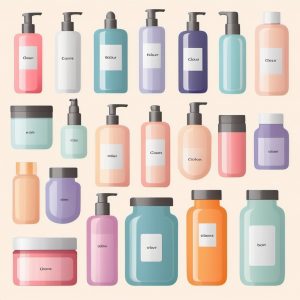Are Cosmetics Regulated in the UK?

The question of how cosmetics are regulated in the UK is a pertinent one for manufacturers, retailers, and consumers alike. With an ever-growing market for cosmetic products, it’s crucial to understand how these items are regulated to ensure safety and compliance, and to build trust and confidence. This blog post will provide an in-depth look at the regulations governing cosmetic products, toiletries, and personal care products in the UK.
Understanding Cosmetic Products and Their Categories
Before delving into regulation specifics, it’s important to define what constitutes cosmetic products. According to UK law, cosmetic products are intended for external application to the human body. This includes cleansers, make-up, moisturisers, perfumes, and toiletries that enhance appearance or cleanse the skin. The definition extends beyond just beauty items. The category includes functional toiletries, such as sunscreen products, deodorants, shampoos, and conditioners, which serve multiple purposes.
Framework of Cosmetic Regulations in the UK
The regulation of cosmetic products in the UK is significantly influenced by the EU Cosmetics Regulation (EC) No 1223/2009, which has been retained following Brexit. This regulation ensures that all cosmetic products sold within the UK adhere to strict safety and labelling requirements.
After the UK’s departure from the EU, a review process is ongoing to align regulations while maintaining high safety standards. However, the fundamental principles remain largely unchanged, which means that all cosmetic products must be:
- Safe for Human Health: Before launch, cosmetic products must be assessed for safety to confirm they are non-toxic and do not pose a risk to consumers.
- Properly Labelled: Ingredients must be listed, and claims made by the manufacturer must be substantiated. Labels must be clear and understandable to consumers.
- Free from Prohibited Ingredients: Certain substances are prohibited from being used in cosmetics due to health risks. Manufacturers must ensure that their cosmetic products comply with these guidelines.
The Role of Responsible Persons and Compliance
Every cosmetic product must have a “Responsible Person” based in the UK, who is accountable for compliance with regulations. This role is vital in ensuring products undergo thorough pre-launch evaluations.
The Responsible Person must maintain a Product Information File (PIF) for each cosmetic product, which includes detailed information such as:
- A description of the cosmetic product.
- Qualitative and quantitative composition.
- Proof of the product’s safety.
- Data from any animal testing, if applicable.
Furthermore, the Responsible Person must notify the UK Submit a Cosmetic Product Notification Portal (SCPN) before selling cosmetic products in the UK. This notification includes relevant details such as product identity, the Responsible Person’s information, and the product’s category.
Importers and Retailers Responsibilities
Importers and retailers (also known as a ‘Distributor’) have critical responsibilities in ensuring that cosmetic products meet UK regulations. Importers are responsible for verifying that products comply with safety standards before entering the market. They must also collaborate with the Responsible Person to ensure that all documentation is in order.
Retailers must check that products sold are compliant and robustly labelled. Any product found to violate regulations may be subject to recalls or penalties, which the retailer must comply with.
Enforcement of Regulations
Enforcement is overseen by several regulatory bodies, including the Office for Product Safety and Standards (OPSS) and Trading Standards, which are run through local offices. These organisations ensure that cosmetic products are safe and that businesses comply with the law.
They conduct inspections and may remove non-compliant products from the market. In serious cases, they may impose fines or other penalties on businesses failing to adhere to regulations. They also inspect products that are imported. This rigid enforcement ensures that consumers can trust the safety of the cosmetic products they use daily.
Final Thoughts
In conclusion, the regulation of cosmetic products, toiletries, and personal care products in the UK is stringent and comprehensive and further details can be found on this government website. With the safety of consumers at the forefront, understanding the implications of these regulations is vital for anyone involved in the cosmetic industry. Manufacturers, retailers, and consumers alike should appreciate the mechanisms in place that uphold the integrity of products available on the market. Through these regulations, we can ensure a standard of safety and quality, fostering trust in the cosmetic products we choose to use every day.
Safety Assessor Qualifications
MSc (Distinction), University of Strathclyde
BSc (Hons) Chemistry, University of Nottingham
Certificate - Safety Assessment of Cosmetics in the EU, Vrije University Brussels
Get in Touch
If you would like to discuss any of your products or ranges, please fill out our contact form




